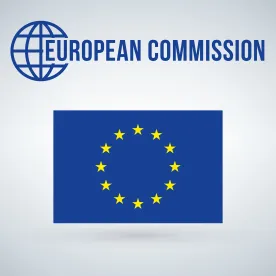Poland
A. UOKiK obliges UPC Polska, a telecommunication and cable television provider, to pay compensation to consumers.
On Dec. 29, 2020, the President of UOKiK issued a commitment decision (Decision) in the proceedings against UPC Polska (UPC). The proceedings were initiated because of various complaints lodged by consumers who found irregularities when concluding or amending the terms of remote contracts for the provision of telecommunications services. In the course of the proceedings the president of UOKiK established that UPC had been activating additional “UPC Security Package” anti-virus software for an additional fee, without obtaining the prior consent of consumers.
To address UOKiK’s concerns, UPC committed to modify the procedure for concluding contracts with anti-virus software by obtaining from consumers explicit consent to pay a fee for the “UPC Security Package.” Certain categories of consumers, as defined by UOKiK, who opted out of the “UPC Security Package” after the trial mode had expired will be eligible for a refund of fees already charged by UPC (provided no such refund has been received already). Additionally, UPC committed to accept complaints concerning the payment of the fees in question and refund up to the first six payments with respect to complaints already submitted and those that will be submitted.
B. UOKIK unconditionally approves the acquisition of Polska Press by PKN Orlen.
On Feb. 5, 2021, the Polish leader in the oil and petrochemical industry market, PKN Orlen, was granted UOKIK consent to take over Polska Press. Polska Press Group is one of the biggest press publishers in Poland, and the leader in regional and local media markets. PKN Orlen owns Ruch, which distributes press and sells it to retail clients, mainly through a network of newspaper stands. This vertical merger mainly affects regional markets for press advertising. However, UOKiK avoided a market test among direct competitors, i.e., press publishers, notwithstanding that it found both vertical (Polska Press’s dominance in the local press market) and conglomerate relations (including Polska Press’s dominance with respect to the printing houses market).
During the UOKIK proceeding, which was launched on Dec. 10, 2020, competitors and organizations such as the Polish Ombudsman, the Helsinki Foundation for Human Rights and the Journalists Association (Towarzystwo Dziennikarskie) gave a negative opinion on the transaction, noting it would lead to a significant part of the press market – press publishing, printing, distribution, and retail – being concentrated in one entity.
According to UOKIK, the transaction does not threaten competition in any of the analyzed markets and, for this reason, the companies have been given unconditional consent for the merger. UOKIK also stated that not all submitted opinions concerning media pluralism were included in the subject-matter assessment of the concentration, as they did not fall within UOKIK’s scope of authority.
C. The president of UOKiK issues first decisions in payment gridlocks proceedings.
The president of UOKiK has taken increased action on late payments, resulting in the instigation of approximately 100 proceedings concerning payment gridlocks. Fines were imposed in two of the first four issued decisions; entrepreneurs avoided fines in the remaining two.
The fines, totaling over PLN 470 thousand, were imposed on companies operating in the freight transport services sector, i.e., Locotranssped and Havi Logistics. The proceedings revealed that in the period under scrutiny, the former failed to pay or paid late outstanding amounts of almost PLN 24.5 million (approx. EUR 5.7 million); for the latter, PLN 155 million (approx. EUR 36 million). Two other companies, the courier company UPS Polska and Galicja Tomaszek – primarily involved in the manufacture of home appliances and equipment – did not have to pay fines, as both were victims of payment gridlocks themselves.
As of Jan. 1, 2020, the president of UOKiK has new regulatory authority to impose fines on entities for accumulating delays in payments to suppliers in an amount exceeding PLN 5 million for a period of three consecutive months (the threshold will be lowered for proceedings instigated next year). A fine is imposed for each day of delay beyond the payment deadlines agreed in the contract unless UOKiK finds a justification for such delay or the entity demonstrates that it is itself a victim of payment gridlock.
Italy
A. Italian Competition Authority (ICA) opens investigation into SIAE for alleged abusive exclusionary conduct in the management and intermediation of copyright-related rights.
The ICA has opened an investigation against Società Italiana degli Autori ed Editori (“SIAE”), a public entity active in the management, protection, and intermediation of copyright-related rights. The preliminary investigation, launched because of complaints issued by certain competitors, aims to verify whether the conclusion of several agreements between SIAE and the main associations of Italian artists has the effect of hindering the activities of new operators. In particular, the above-mentioned agreements would allegedly restrict competition concerning access to the market for collecting fees that, per Italian law, must be paid to authors, producers, and artists for non-professional/non-commercial use of their copyrighted works.
Given SIAE’s leading market position, the ICA considered that the above-referenced conduct could result in the exclusion of potential new competitors in the field of management and intermediation of copyright-related rights.
B. ICA clears BPER’s acquisition of about 620 branches of UBI and Intesa Sanpaolo.
On Feb. 2, 2021, ICA cleared Italian banking operator BPER Banca S.p.A.’s (BPER) acquisition of about 620 branches of UBI Group and Intesa Sanpaolo Group, generating a payment of about EUR 2-3 billion. The transaction is closely linked to Intesa Sanpaolo Group’s acquisition of UBI Group, which ICA cleared on July 16, 2020, subject to divestment of a number of branches.
With this acquisition, BPER has become one the main Italian banking operators. However, because the combined market shares of BPER and the acquired branches does not exceed 25% of the relevant markets, except for few provinces in the North (Varese) and South of Italy (Crotone), the acquisition was cleared in phase I, as it did not raise competition concerns.
European Union
A. European Commission
1. The Commission publishes a July 2019 prohibition decision concerning an anticompetitive agreement in the sector of reinforcing steel bars.
On Feb. 12, 2021, the Commission made public its prohibition decision against five Italian manufacturers of reinforcing steel bars for concrete. In its decision, the Commission imposed total fines of EUR 16,074,000 for the companies’ participation in a price-fixing cartel between December 1989 and July 2000. In 2017, the General Court and the EU Court of Justice had annulled on procedural grounds two Commission decisions from 2002 and 2009 relating to the cartel.
The 2021 decision addressed the procedural issues and re-imposed fines on the five Italian operators. The re-adopted decision includes an exceptional 50% fine reduction for all five companies, in recognition of the long duration of proceedings.
2. The Commission fines Valve, owner of the online PC gaming platform “Steam,” and five video-game publishers EUR 7.8 million for breaching EU antitrust rules.
According to the Commission, Valve and the publishers restricted cross-border sales of certain PC video games on the basis of users’ geographical location within the European Economic Area (“EEA”), entering into so-called “geo-blocking” practices. Because the publishers cooperated with the Commission, the EUR 6 million in fines imposed on them was reduced. Valve did not to cooperate with the Commission and was fined more than EUR 1.6 million.
Executive Vice President Margrethe Vestager, head of competition policy, said: “More than 50% of all Europeans play video games. The videogame industry in Europe is thriving and it is now worth over € 17 billion. Today’s sanctions against the ‘geo-blocking’ practices of Valve and five PC video game publishers serve as a reminder that under EU competition law, companies are prohibited from contractually restricting cross-border sales. Such practices deprive European consumers of the benefits of the EU Digital Single Market and of the opportunity to shop around for the most suitable offer in the EU.”
The Commission found that by bilaterally agreeing to geo-block certain PC video games from outside a specific territory, Valve and each publisher partitioned the EEA market in violation of EU antitrust rules. The geo-blocking practices concerned around 100 PC video games of different genres, including sports, simulation, and action games. They prevented consumers from activating and playing PC video games sold by the publishers’ distributors either on physical media, such as DVDs, or through downloads. These business practices therefore denied European consumers the benefits of the EU’s Digital Single Market to shop around between Member States to find the most suitable offer.
3. Mondelēz revisited.
The Commission has opened a formal antitrust investigation to assess whether Mondelēz, one of the largest producers of chocolate, biscuits, and coffee in the EU, has – in breach of EU antitrust rules – restricted competition in a range of national markets by hindering the cross-border trade of these products between Member States. Competition policy head Margrethe Vestager said: “Chocolates, biscuits and coffee are products consumed by European citizens daily. We are opening a formal investigation to see whether Mondelēz, a key producer of these products, might have restricted free competition in the markets concerned by implementing various practices hindering trade flows, ultimately leading to higher prices for consumers. Trade in the internal market can lower prices and increase the variety of products offered across Member States.”
The Commission is concerned that Mondelēz may have restricted the so-called “parallel trade” of its chocolates, biscuits, and coffee between EU Member States through agreements and unilateral practices. Traders and retailers try to procure products in the internal market where the prices are lower and trade them to markets where prices are higher. Restrictions to such parallel trade can lead to the isolation of a national market whereby the manufacturer or supplier can charge higher prices. This can lead to less product diversity.
In particular, the Commission will investigate certain potentially anti-competitive practices by Mondelēz including:
-
limiting the sales territories within the EU through agreements that determine where a Member State a trader can or cannot sell the products, or restricting passive sales;
-
curtailing parallel trade through agreements that raise prices or limit volumes specifically for customers that trade the products across Member States;
-
agreements with customers not to engage in parallel trade or not to procure products from parallel trade, inter alia, in exchange for payments or other forms of compensation;
-
restrictions on the languages used on packaging either unilaterally or through agreements with traders, thereby creating friction on sales to certain other EU Member States; and
-
refusing to supply certain traders, with a view to restricting imports into certain markets.
4. The Commission publishes a decision concerning infringements in the car-window market.
In a February 2021 decision, the Commission found that automotive supplier MAGNA and automotive producer BROSE, and their respective affiliate entities, engaged in the following infringements of EU law:
-
price coordination and exchange of commercially sensitive information with a view to reducing competitive uncertainty for sales of door modules and window regulators to certain manufacturers of passenger cars in the EEA.
-
price coordination and exchange of commercially sensitive information with a view to reducing competitive uncertainty for sales of latches and strikers in relation to certain manufacturers of passenger cars in the EEA.
B. The General Court (“GC”) dismisses Ryanair’s challenge against a Commission decision authorizing a tax payment deferral introduced to support airlines.
Ryanair brought an action for annulment of the Commission’s decision approving a tax-payment deferral introduced by France to support airlines holding a French license. The measure was approved pursuant to Article 107(2)(b) TFEU, according to which aids aimed at remedying damages caused by natural disasters or exceptional occurrences are deemed compatible with the internal market.
In a Feb. 17, 2021 judgment, the GC first confirmed that the COVID-19 pandemic and related travel restrictions fall within the notion of “exceptional occurrences” under Article 107(2)(b) TFEU. It being undeniable that the purpose of the measure was to compensate the damages borne by airlines in the context of the pandemic, the Court found that the tax deferral satisfies the conditions for the application of Article 107(2)(b) derogation. This said, the GC upheld that limiting the deferral to companies having a French license is appropriate to achieve the aforesaid objective, having regard to the stable reciprocal links between France and the beneficiaries. Considering that State resources are limited, the Court also confirmed that France correctly used its resources to support those airlines most severely affected by the travel restrictions implemented in the national territory, i.e., airlines having a French license which mostly operate flights in, to, and from France.
Additionally, the Court stated that the Commission correctly assessed the value of the advantage granted to the beneficiaries, stressing that the harm suffered by airlines is likely higher than the value of the deferral, so that there was no risk of overcompensation.
Edoardo Gambaro, Pamela J. Marple, Yuji Ogiwara, Stephen M. Pepper, Gillian Sproul, Hans Urlus, Dawn (Dan) Zhang, Mari Arakawa, Filip Drgas, Simon Harms, Marta Kownacka, Pietro Missanelli, Massimiliano Pizzonia, Anna Celejewska-Rajchert, Jose Abel Rivera-Pedroza, Ippei Suzuki, Rebecca Tracy Rotem and Alan W. Hersh contributed to this article.







 />i
/>i
